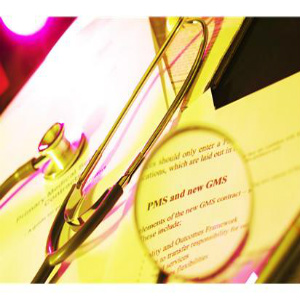Exclusive A third of CCG leaders have requested new powers to performance manage the GP contract, in a radical move that could see them taking contractual action against their member practices.
A Pulse analysis of proposals submitted by 145 CCGs in June found that 32% had signalled they wanted to take on performance management of the GP contract.
At least 15% of CCGs said they wanted to take over complete control of the GMS contract from NHS England and 60% said they wanted a role with regards to PMS contracts, including negotiation of terms and PMS reviews.
The analysis shows that local commissioners across the country are keen to take control of huge chunks of the GP budget, when they are given the green light in April next year.
NHS Leicester City CCG said that a survey of member practices and the public showed that 53% supported CCG taking on a performance management role and deciding on sanctions, while NHS Surrey Downs CCG said that ‘performance measurement tools’ would demonstrate that ‘new innovations are not impacting on core service delivery’.
CCGs are expected to submit their final co-commissioning applications to local area teams in January, with the intention for level two commissioning to begin from 1 March and level three from April. But the Pulse analysis gives the first indication of what additional powers they may be asking for.
It reveals:
- 37% of CCGs said that they wanted to be the decision-maker on, or influence decisions on, new providers, practice splits and mergers;
- 56% want responsibility for for premises budgets;
- 74% want to take on commissioning responsibility for DESs, such as for example the Avoiding Unplanned Admissions scheme;
- 20% of CCGs want to be involved in managing QOF including evaluation of performance and managing appeals
Two-thirds (66%) said they wanted the maximum ‘level three’ responsibilities of primary care, which would allow them to act on behalf of NHS England, taking full responsibility for commissioning services with a delegated budget, although this will require central sign off.
Some 28% wanted ‘level two’ responsibilities, which allows them to jointly make commissioning decisions with NHS England and 6% wanted the lowest ‘level one’ responsibilities, limited to influencing area team decisions.
NHS England has recently opened up the scope of what CCGs will be allowed to do as part of co-commissioning, including setting up local QOF schemes. More detailed guidance on how co-commissioning will work is expected from NHS England early next week.
But there will be considerable opposition from the GPC.
Related articles
CCGs to be given green light to agree local QOF deals
CCGs to take over majority of GP budget, under NHS England proposals
GP contract carve-up: How CCGs are taking control of practice funding
GPC chair Dr Chaand Nagpaul warned that these reforms will threaten the national contract. He said: ‘These proposals raise many questions and our biggest issues are that we believe that the population is best served by a consistent national contract and this opens up the possibility of not having that.
‘It also mentioned it is permissive therefore of performance management of the GP contract and GPC has always felt that this carries an inherent conflict of interest. It is vital that these structures command the trust and confidence of their GP members and they need absolute assurance around probity.’
Dr Nagpaul added that CCG performance management of contracts was not appropriate: ‘Our position is that we do not think it is appropriate because there are inherent conflicts of interest in a CCG board holding and performance managing a GP contract from within its own area.’
NHS England has yet to specify whether CCGs will be able to performance manage member practices, saying ‘the question is open for discussion and debate,’ with the position set to be clarified next week.
Dr Steve Kell, co-chair of the NHS Clinical Commissioners leadership group, said: ‘What we have said all along is that co-commissioning brings an opportunity to get local, clinically led general practice at a time when it has become distant and transactional. CCGs have an important role in supporting and developing general practice and strong general practice absolutely central to CCGs’ plans.’

















